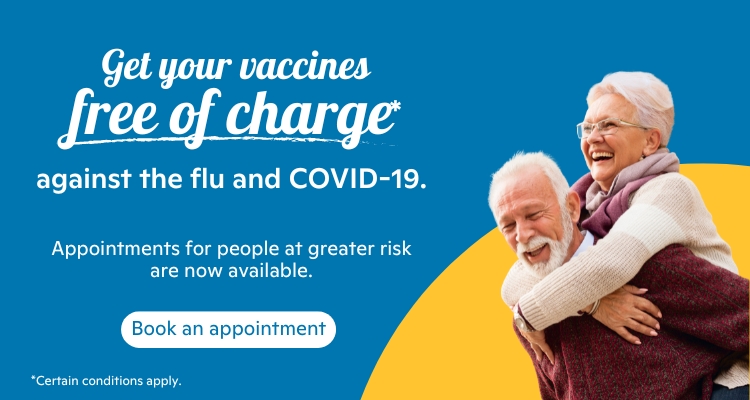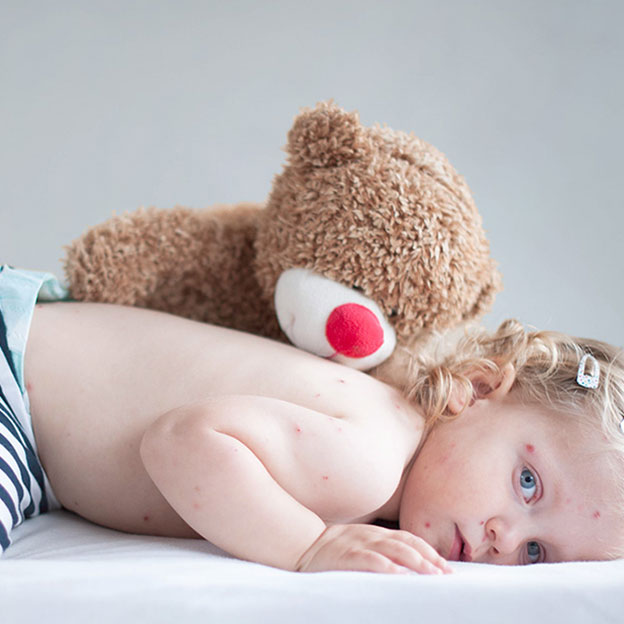Caused by the varicella zoster virus, chicken pox is one of the most contagious infectious diseases among children. Has your child caught it yet? To limit the consequences, here is some advice to follow carefully.

1
Fight off fever.
Fever is one of the first symptoms of chicken pox. It can occur at the same time as the first blister, or even a day or two before. To reduce your child's fever, you can give him acetaminophen but not aspirin or other container products. Aspirin increases the risk of suffering from Reye's syndrome, a serious disease that can damage the liver and brain. Dress your child in lightweight clothes and keep the house temperature comfortable, like between 18°C and 21°C. Also, do not forget to make him drink frequently (water or milk, or other liquids) to avoid dehydration. Always consult your pharmacist or family doctor before giving any medication to your child; he’ll determine the medication dosage based on your child’s weight and age.
2
Fight off itching.
At first thought of the chicken pox, red bumps and itching come to mind. Despite this fact, make sure your child avoids scratching because some blisters may leave temporary or even permanent scars. To relieve itching, give him warm baths every 3 to 4 hours. You can also add oatmeal products like AVEENO® to his bath (follow use instructions) or baking soda (about ½ cup). Another way to avoid itching is to apply cold compresses on the blisters. In some cases, antihistamine can really help. However, the best thing to do is to seek advice from your pharmacist affiliated with Brunet.
3
Prevent infections.
It’s important to pay close attention to hygiene during illness. To avoid the blisters from getting a bacterial infection, cut your child’s nails and wash his hands often. Here’s a little trick: make him wear clean cotton gloves (or socks strung onto his hands) to sleep. This technique decreases the chances of him scratching while he sleeps. If your child still wets his bed, change him more often than usual. Finally, if the skin appears damaged or has lesions, wash it with mild soap and then apply a topical antibiotic. Don’t forget to cover all wounds with a bandage.
4
Consult a doctor if necessary.
Do not hesitate to go see a doctor if your child runs a fever for more than 2 days and if the fever is higher than 38.5°C, if he has infected wounds (pus, red in colour or painful to the touch), if he seems very ill or his condition worsens, if he has stiff neck and intense headaches, or if he has difficulty breathing. When in doubt, call Info-Santé at 8-1-1 or contact your pharmacist affiliated with Brunet.
Good to know
In some cases, your doctor may prescribe an antiviral medication to reduce symptoms and speed up healing. To be effective, however, this drug should be taken within 24 hours of the onset of the vesicles.
Did you know?
Children older than one year can now be vaccinated against chicken pox. It’s the best way to protect yourself against the disease and to reduce the risk of developing zoster in adulthood.
Drugs and natural health products may cause serious adverse effects or interactions with other drugs. Carefully read inscriptions, warnings and brochures provided by the manufacturer and consult your pharmacist when purchasing such drugs and natural health products. Keep out of the reach of children.

